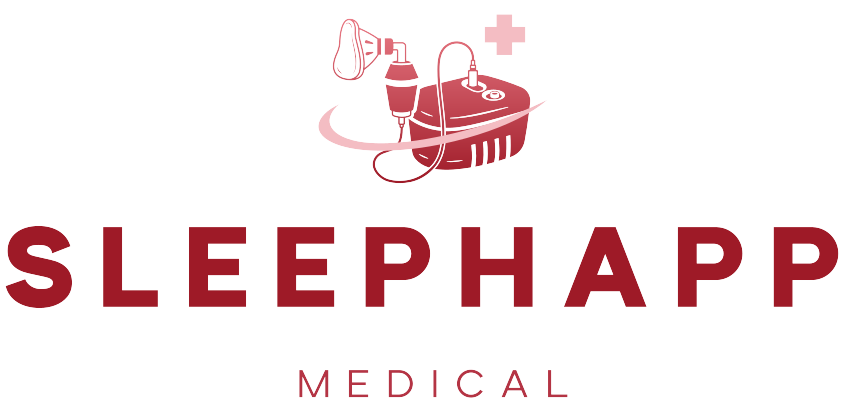Sleep Study and APAP: How They Work Together to Optimize Your Therapy
Home » Sleep Study and APAP: How They Work Together to Optimize Your Therapy

Table of Contents
Sleep apnea is a common problem that disrupts sleep. If untreated, it can cause serious health issues. Doctors use sleep studies and APAP (Automatic Positive Airway Pressure) to treat it effectively. These two tools work together to provide a customized solution. Let’s see how they help improve sleep therapy.
What Is a Sleep Study and Why Is It Important?
Understanding Sleep Studies
A sleep study is a test that checks your sleep. It can be done in a lab or at home. During the study, doctors monitor:
- How your brain works during sleep.
- Your breathing patterns.
- The amount of oxygen in your blood.
- Your heart rate and movements.
This test helps doctors understand what is happening while you sleep.
Sleep Disorders: a Study Can Find
Sleep studies help find problems like:
- Obstructive Sleep Apnea (OSA).
- Central Sleep Apnea (CSA).
- Insomnia or trouble staying asleep.
- Restless Leg Syndrome (RLS).
- Unusual sleep activities like sleepwalking.
Why Sleep Studies Matter
A sleep study shows the severity of your condition. It helps doctors create a treatment plan just for you. This is very important when adjusting APAP settings to meet your needs.
What Is APAP Therapy?
APAP therapy is a treatment for sleep apnea. It uses a machine to give air pressure. The pressure changes automatically based on your breathing. This keeps your airway open while you sleep.
How APAP Works
APAP is a machine that helps people with sleep apnea. It adjusts the air pressure automatically while you sleep, keeping your airway open so you can breathe easily.
Unlike CPAP, which gives constant pressure, APAP changes the pressure based on your breathing. Sensors in the machine detect when you need more or less air.
Benefits of APAP
- Comfortable Therapy: The machine adjusts pressure to your needs, making it natural.
- Better Sleep: It works smoothly to reduce interruptions.
- More Flexible: APAP is great for people whose needs change at night.
How Sleep Studies and APAP Work Together
Using Sleep Studies to Set Up APAP
Sleep studies give essential information about your breathing problems. Doctors use this information to set up the APAP machine. For example:
- They decide the range of air pressure you need.
- They adjust the machine for specific issues, like when breathing slows or stops.
This ensures the therapy is tailored to you.
Tracking Your Progress
APAP machines also collect data while you use them. They record:
- How long do you use the machine each night?
- How many breathing problems happen during sleep?
- If the mask fits appropriately or leaks air.
Doctors use this information to improve your therapy over time.
Follow-Up Sleep Studies
Sometimes, doctors perform another sleep study after you start using APAP to check whether the machine works well or needs adjustments.
Benefits of Combining Sleep Studies and APAP
Accurate Diagnosis and Treatment
Sleep studies provide a precise diagnosis. This ensures your APAP machine is set up correctly from the start.
Improved Comfort and Results
When therapy matches your needs, you are more likely to use it. APAP, combined with sleep study data, makes therapy comfortable and practical.
Long-Term Health Improvements
Proper treatment of sleep apnea can prevent serious health issues like:
- Heart problems.
- Daytime tiredness.
- Depression and anxiety.
Challenges and the Future
Common Challenges
Some people find it hard to start APAP therapy. They may feel uncomfortable or worry about costs. Sleep studies can help by showing that the treatment works.
New Technology
The future looks exciting for sleep therapy. Wearable devices and more innovative APAP machines are being developed. These tools will make therapy even more accessible and more accurate.
Conclusion
Sleep studies and APAP therapy work together to treat sleep apnea. Sleep studies give detailed information, and APAP provides personalized treatment. Together, they help people sleep better and live healthier lives.
If you think you have sleep apnea, talk to a doctor. Sleep therapy can improve your life!
